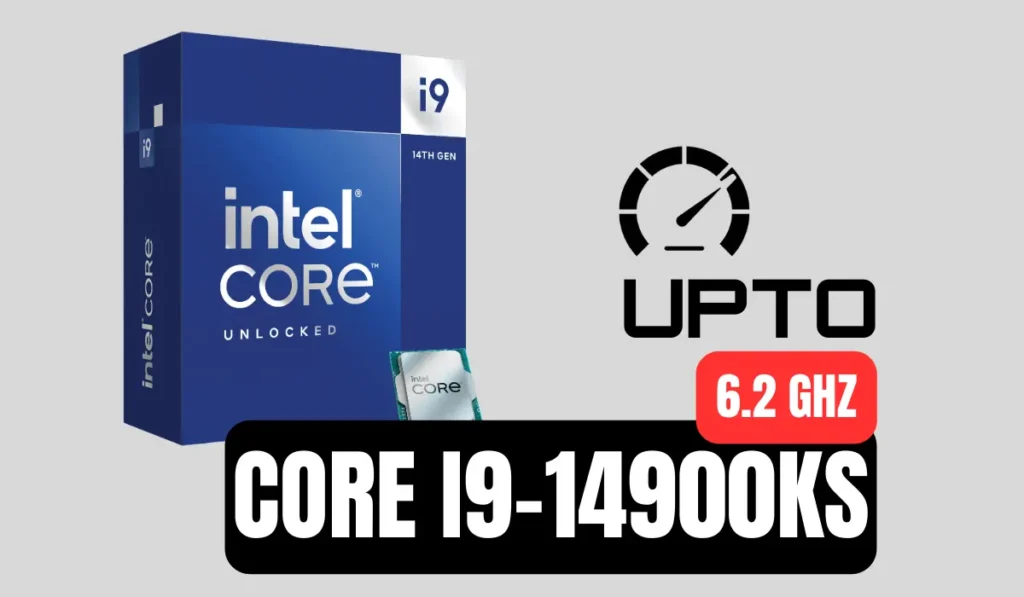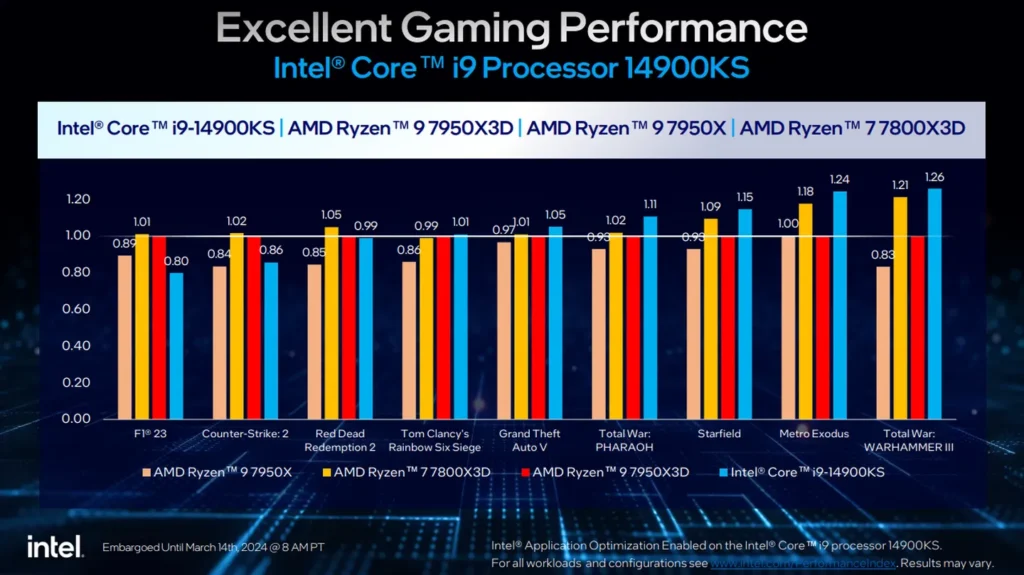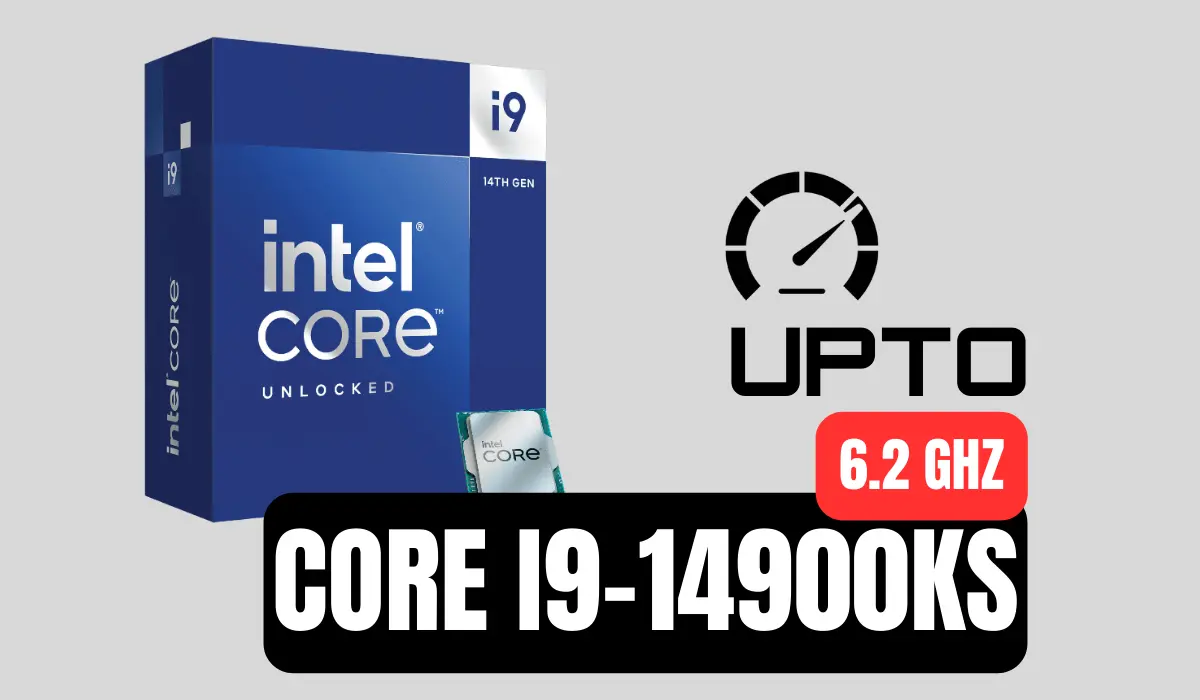Intel has launched its latest flagship processor, the Core i9-14900KS, boasting record-breaking clock speeds of up to 6.2 GHz. This marks a significant leap from the previous generation’s 6 GHz barrier and positions the 14900KS as a potential powerhouse for both gamers and creative professionals.
Intel Core i9 – 14900KS : A Farewell to LGA 1700?
This launch is significant for another reason – it’s likely the final hurrah for the LGA 1700 socket before Intel transitions to a new platform with its next-generation CPUs. This means the 14900KS offers a chance to squeeze the most performance out of the current socket standard before a potential upgrade path emerges.

Clocking in at the Top
The key feature of the 14900KS is undoubtedly its impressive clock speed. Boasting a 200 MHz increase over the previous 13900KS, it achieves a blazing-fast 6.2 GHz turbo frequency out of the box. This opens doors for potential overclocking enthusiasts who might push the limits even further.
Maintaining the Core Count
While the clock speed takes center stage, the core configuration remains similar to the 14900K. The 14900KS retains the 24-core layout, featuring eight high-performance cores and 16 efficiency cores. This hybrid architecture aims to deliver a balance between raw power and efficient handling of background tasks.
Power Considerations
The increased performance of the 14900KS comes at the cost of higher power consumption. Compared to the 14900K’s 125-watt base power, it bumps it up to 150 watts. This necessitates proper cooling solutions to ensure optimal performance without overheating.
Compatibility and Availability
The good news for existing motherboard owners is that the 14900KS is compatible with current Z790 and Z690 motherboards, provided they have the latest BIOS updates. This allows for easier integration into existing high-end gaming or workstation builds.
Performance Benchmarks Core i9-14900KS : A Glimpse of Potential

While independent reviews will provide a more comprehensive picture, Intel’s benchmarks suggest significant performance gains. The company claims up to 15% better gaming performance compared to the 13900KS and a staggering 73% improvement in multitasking workflows involving 3D production software when pitted against AMD’s Ryzen 9 7950X.
The Gaming Contender: Can it Topple the King?
One of the most intriguing aspects of the 14900KS launch is its potential impact on the current gaming CPU landscape. AMD’s Ryzen 7 7800X3D has recently dominated gaming benchmarks. While Intel’s benchmarks suggest the 14900KS might surpass the 7800X3D in some games, independent reviews and real-world testing are crucial to solidify this claim.
A Pricey Proposition
The 14900KS carries a price tag of $699, similar to its predecessor. This positions it firmly in the high-end segment, catering to enthusiasts and professionals who demand the absolute best performance.
The Final Verdict: A Fitting Farewell or a Stopgap Measure?
The Core i9-14900KS presents a compelling option for those seeking the pinnacle of performance on the current LGA 1700 platform. Its record-breaking clock speeds and potential for overclocking make it a tempting choice for gamers and content creators alike. However, the higher power consumption and upcoming socket shift might make some consider waiting for the next generation.
Ultimately, the decision hinges on individual needs and upgrade cycles. If you’re building a new high-end system or seeking to maximize performance on the current LGA 1700 platform, the 14900KS stands as a powerful option. However, if you’re open to waiting for the next generation and its potential architectural advancements, holding off might be a wise strategy.


